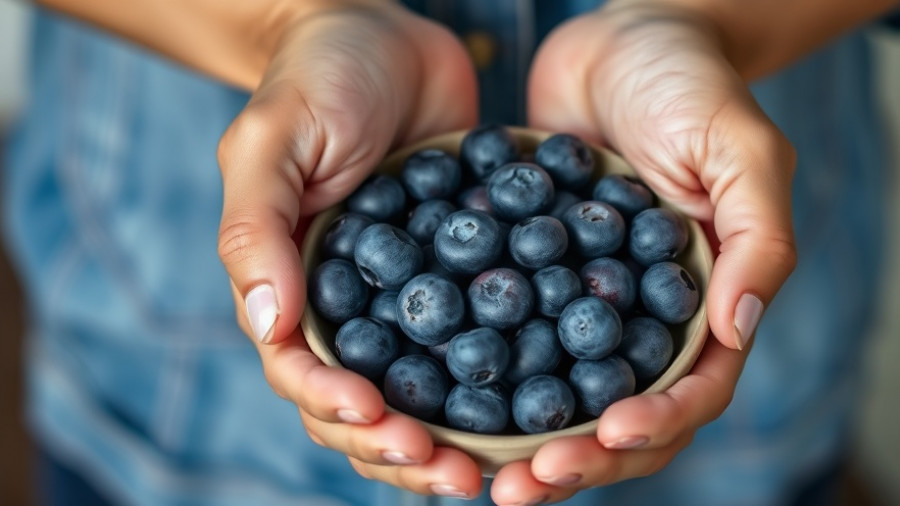
Unlock Your Brain's Potential with Blueberries
Did you know that your brain is constantly evolving? It’s a fascinating organ that typically weighs between 1,300 to 1,400 grams—surprisingly larger than a cow's brain but smaller than a bottlenose dolphin's! With approximately 90-100 billion neurons, it’s vital that we do all we can to maintain and grow this intricate web of connections. That’s where our beloved blueberries come in.
The Science of Neurogenesis
Every day, the average person loses around 85,000 neurons, which adds up to a staggering 31 million a year! Fortunately, there’s a process called neurogenesis—that’s the growth of new neurons—allowing us the possibility to regenerate those lost brain cells. Surprisingly, we can stimulate this process through specific dietary choices and lifestyle changes. Recent research has spotlighted the importance of foods like blueberries, which contain flavonoids known to promote brain health. These little berries can help lower the risk of cognitive decline, making them a superfood you’ll want to add to your pantry.
Blueberries: Nature's Brain Boosters
A study has shown that blueberries not only improve cognition but also help tackle neuroinflammation—a major player in aging and related diseases. Their antioxidant properties help combat oxidative stress, which can rapidly age the brain. By incorporating blueberries into your daily routine, you can lower your risk of dementia and spur cognitive improvement. In fact, healthy older adults who consumed concentrated blueberry juice daily experienced significant gains in brain function!
How to Incorporate Blueberries into Your Diet
Wondering how to sneak more blueberries into your meals? Try adding them to smoothies, yogurt, or even pancakes. Both fresh and frozen blueberries pack a nutritional punch, so you can't go wrong with either option. When the price of fresh blueberries drops during the season, buying in bulk and freezing your stash is a smart way to enjoy their benefits year-round!
The Bigger Picture: A Holistic Approach to Brain Health
While blueberries offer wonderful health benefits, a comprehensive approach to brain health is essential. This means integrating a holistic lifestyle involving regular exercise, intermittent fasting, and balanced nutrition that extends beyond just one food item. For anyone exploring natural remedies, embracing a holistic mode of living is vital in maintaining cognitive function as we age.
Final Thoughts: Your Brain's Best Friend
It's not just about “growing” new brain cells; it’s about nurturing those you already have! With the support of natural foods like blueberries and a balanced lifestyle, you can keep your cognitive health in check. So, what are you waiting for? Dive into a plethora of delicious blueberry recipes and start this journey toward a healthier mind. Every little bit counts!
 Add Row
Add Row  Add
Add 




Write A Comment